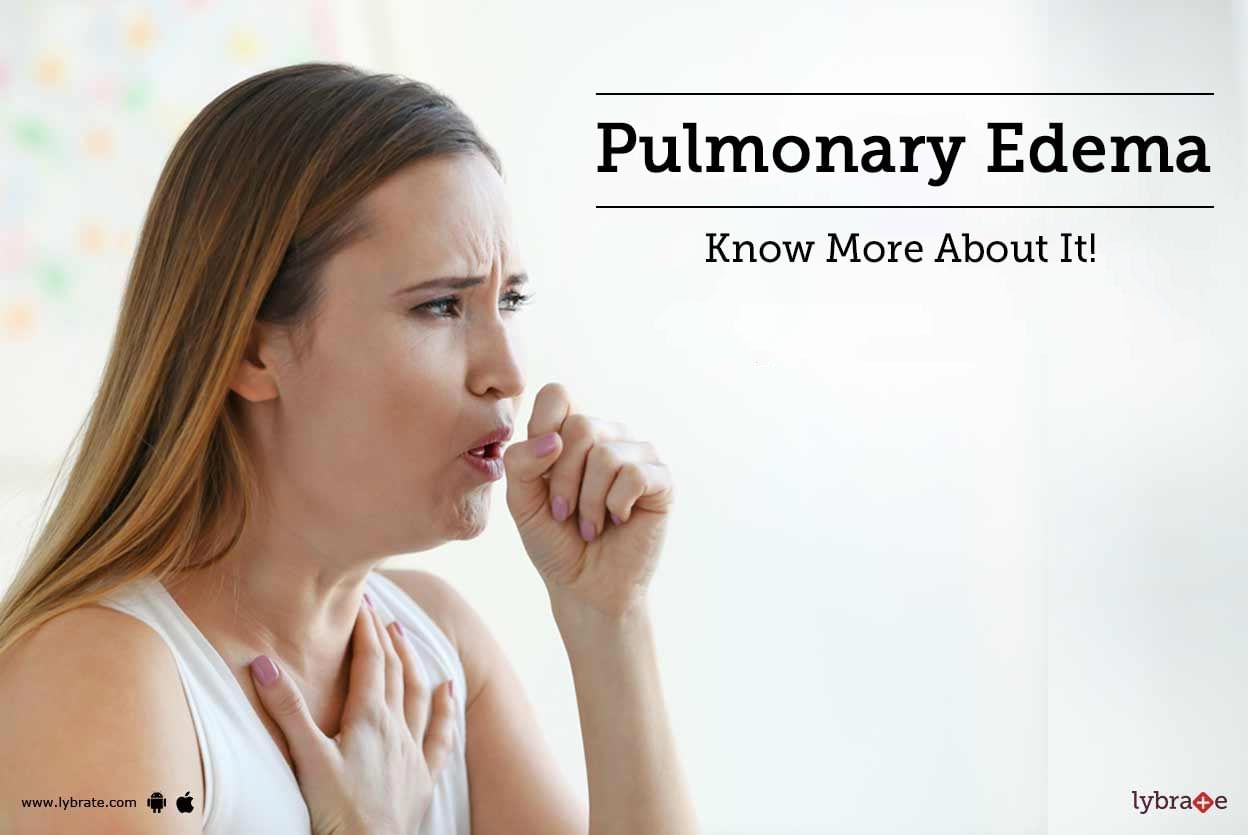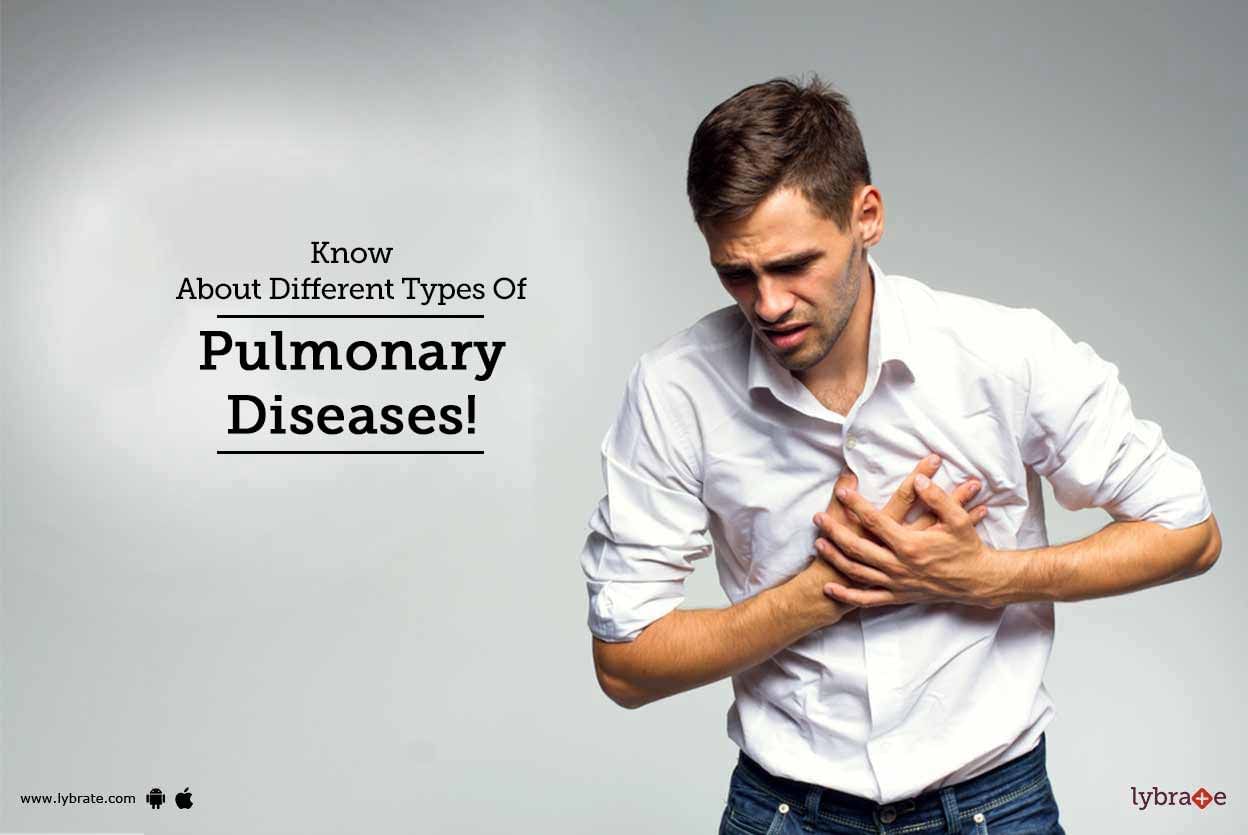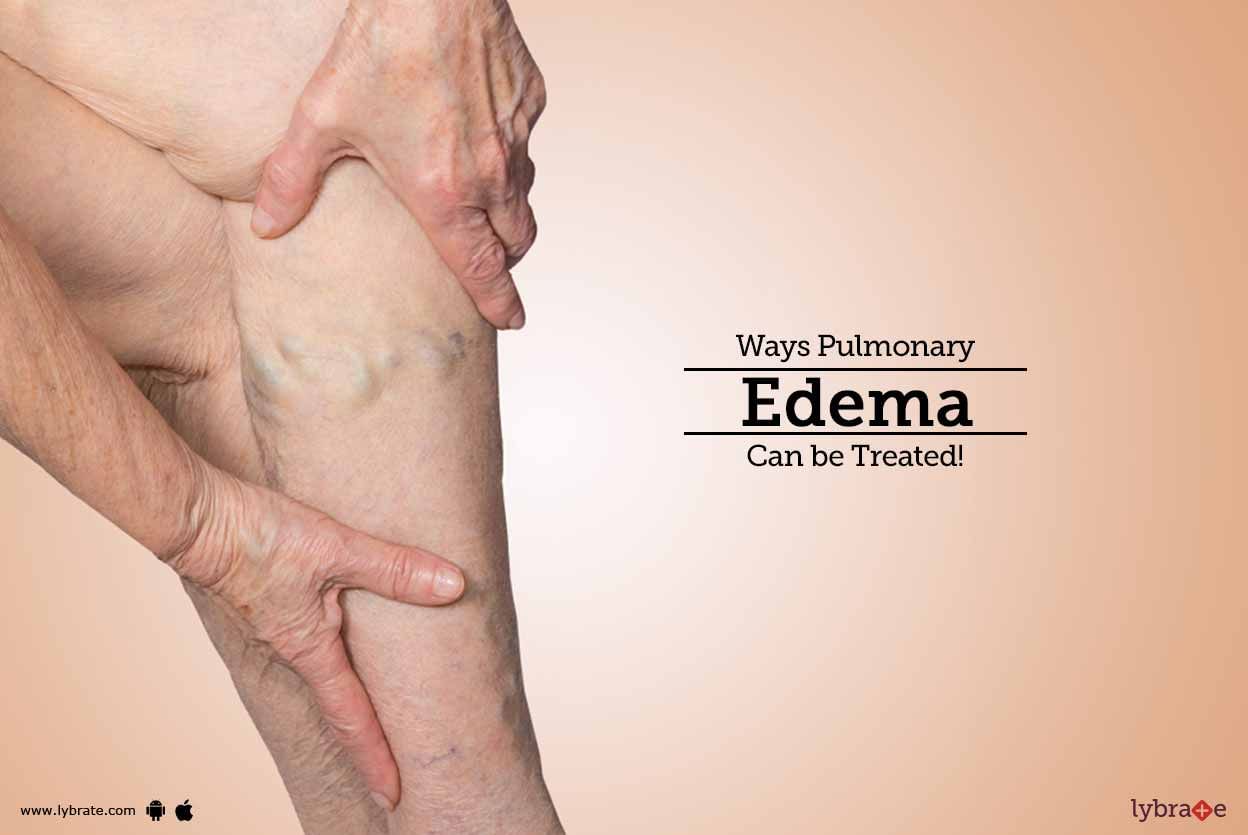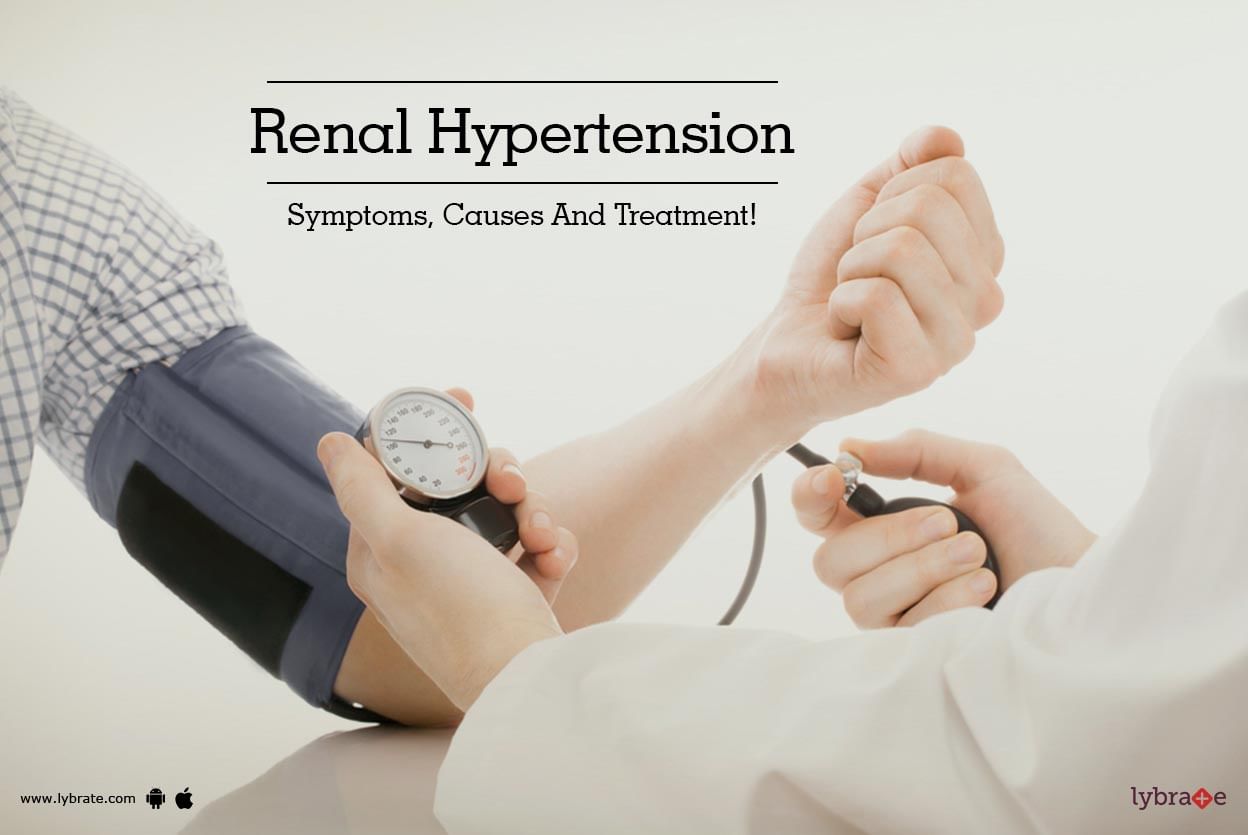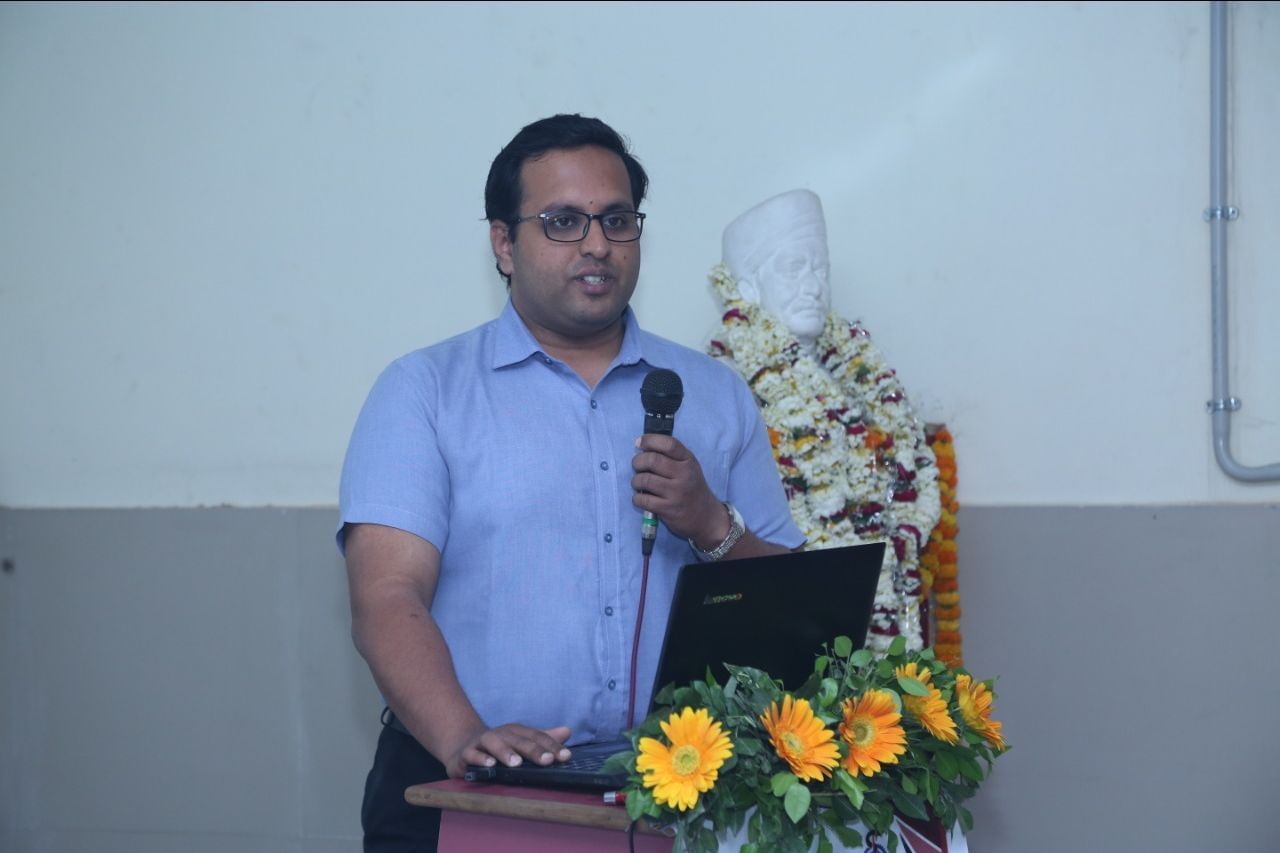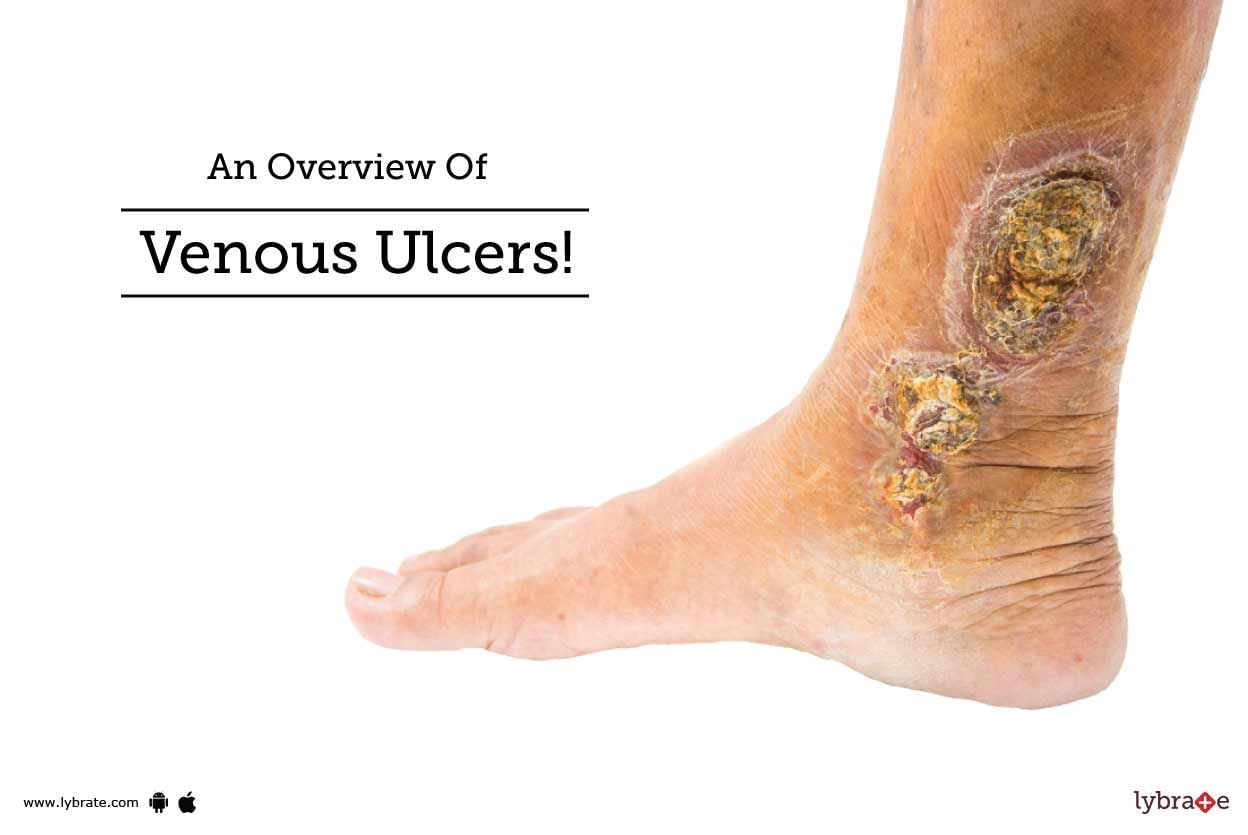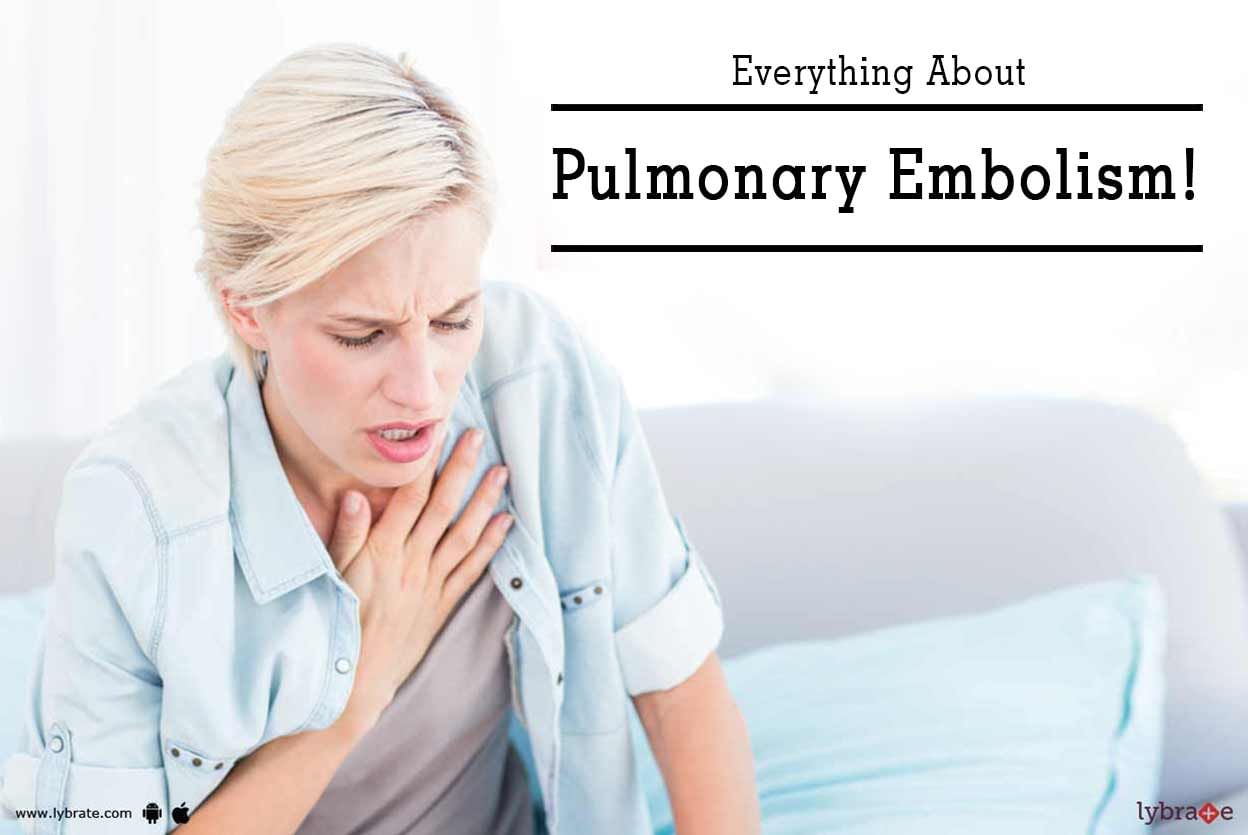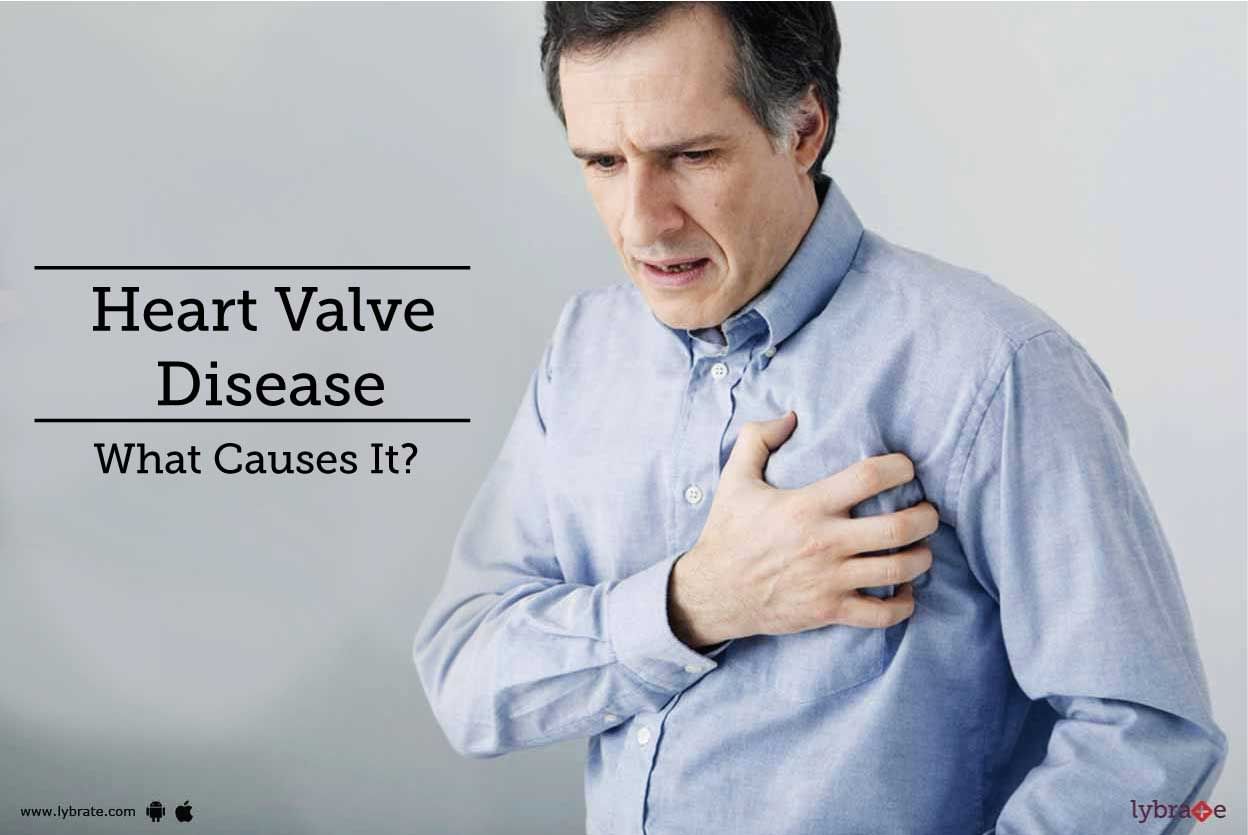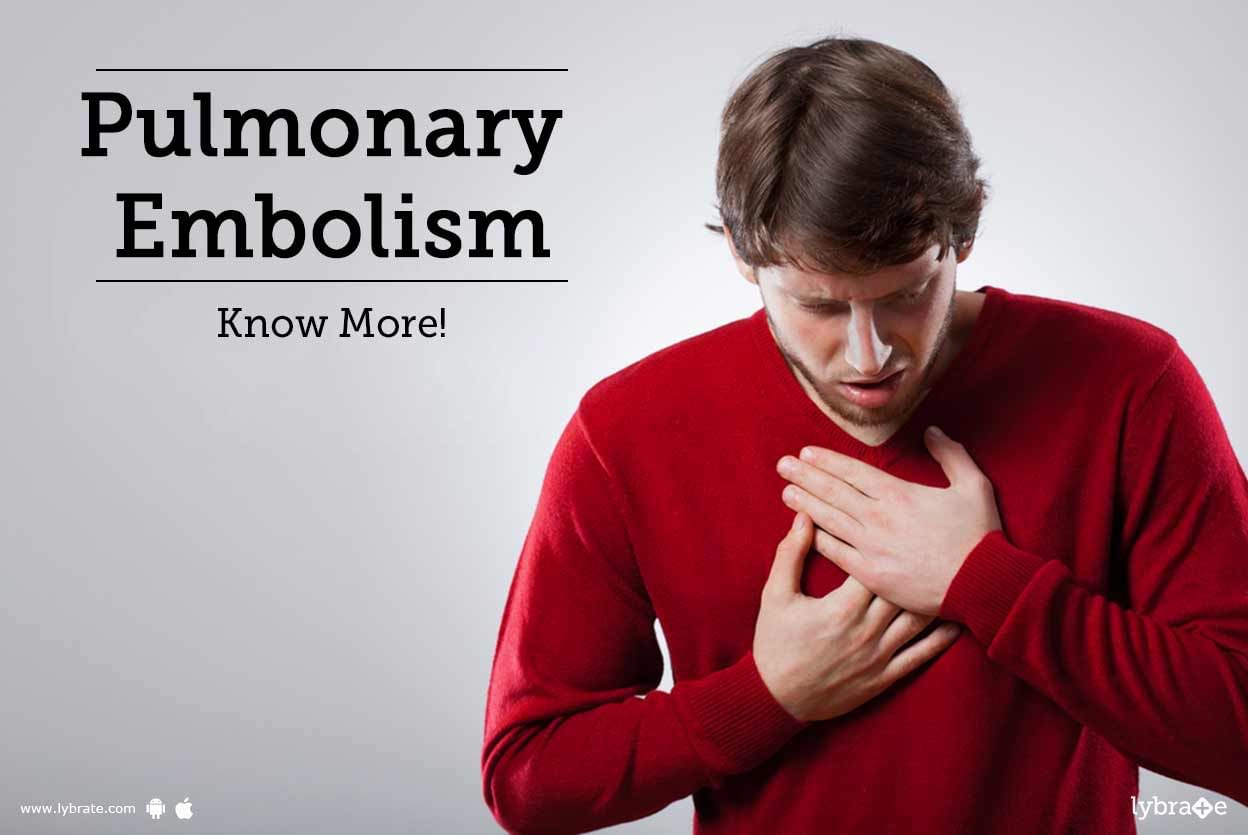Get the App
For Doctors
Login/Sign-up
About
Health Feed
Find Doctors
Health Packages
AllQ&AsTipsQuizzes
Pulmonary Edema Tips
Last Updated: 4 years ago• Featured Tip
Share
Bookmark
Report
Pulmonary edema is a disorder wherein fluid accumulates in the lungs leading to lack of oxygen in the body. The usual cause of pulmonary edema is congestive heart failure (the muscles of the heart are unable to pump blood). In this disorder, the heart has to work extra hard to pump blood, so this adds extra pressure on the blood vessels that are present in the lungs. In a bid to relieve this added pressure, fluid is released into the lungs by the blood vessels.
The function of your lung...more
The function of your lung...more
Last Updated: 5 years ago• Featured Tip
Share
Bookmark
Report
Pulmonary Edema
The term Edema refers to swelling. This swelling is generally caused by the fluids inside the blood vessels permeating to the outside of the blood vessels and into the tissues in the surrounding areas. The main causes of this happening are lack of proteins in the blood which hold the fluid in the plasma cells or because of excessive pressure in the blood vessels.
Pulmonary edema is the term used when the lungs are affected by edema. In this condition fluid accumulate...more
The term Edema refers to swelling. This swelling is generally caused by the fluids inside the blood vessels permeating to the outside of the blood vessels and into the tissues in the surrounding areas. The main causes of this happening are lack of proteins in the blood which hold the fluid in the plasma cells or because of excessive pressure in the blood vessels.
Pulmonary edema is the term used when the lungs are affected by edema. In this condition fluid accumulate...more
Last Updated: 5 years ago• Featured Tip
Share
Bookmark
Report
Pulmonary diseases are some of the most commonly experienced health conditions all over the world. Millions of people suffer due to various causes including genetics, smoking, pollutants and infection. Now lungs are one of the most important and complex organs of the body. They are the apparatus through which oxygen enters and carbon dioxide gets expelled.
Lungs expand and contract on a constant basis to ensure that we can breathe properly. Let us find out more about lung or pulmonary d...more
Lungs expand and contract on a constant basis to ensure that we can breathe properly. Let us find out more about lung or pulmonary d...more
Last Updated: 6 years ago• Featured Tip
Share
Bookmark
Report
Pulmonary edema is a disorder wherein fluid accumulates in the lungs leading to lack of oxygen in the body. The usual cause of pulmonary edema is congestive heart failure (the muscles of the heart are unable to pump blood). In this disorder, the heart has to work extra hard to pump blood, so this adds extra pressure on the blood vessels that are present in the lungs. In a bid to relieve this added pressure, fluid is released into the lungs by the blood vessels.
The function of your lung...more
The function of your lung...more
Last Updated: 6 years ago• Featured Tip
Share
Bookmark
Report
Pulmonary edema is a disorder wherein fluid accumulates in the lungs leading to lack of oxygen in the body. The usual cause of pulmonary edema is congestive heart failure (the muscles of the heart are unable to pump blood). In this disorder, the heart has to work extra hard to pump blood, so this adds extra pressure on the blood vessels that are present in the lungs. In a bid to relieve this added pressure, fluid is released into the lungs by the blood vessels.
The function of your lung...more
The function of your lung...more
Last Updated: 6 years ago• Featured Tip
Share
Bookmark
Report
Pulmonary edema is a disorder wherein fluid accumulates in the lungs leading to lack of oxygen in the body. The usual cause of pulmonary edema is congestive heart failure (the muscles of the heart are unable to pump blood). In this disorder, the heart has to work extra hard to pump blood, so this adds extra pressure on the blood vessels that are present in the lungs. In a bid to relieve this added pressure, fluid is released into the lungs by the blood vessels.
The function of your lung...more
The function of your lung...more
Last Updated: 7 years ago• Featured Tip
Share
Bookmark
Report
Renal hypertension is a disorder, which is characterized by a rise in the blood pressure that results from kidney disease. The blood flow to the kidney is impaired due to the narrowing of the arteries and this leads to renovascular hypertension.
Symptoms
The various symptoms of renal hypertension are:
You may experience symptoms of high blood pressure.
Your kidneys may not function properly due to the impaired supply of blood
It may lead to presence of blood in yo...more
Symptoms
The various symptoms of renal hypertension are:
You may experience symptoms of high blood pressure.
Your kidneys may not function properly due to the impaired supply of blood
It may lead to presence of blood in yo...more
Last Updated: 4 years ago• Featured Tip
Share
Bookmark
Report
Chronic Venous Insufficiency is an abnormal condition of the leg veins. It occurs when either the walls or the one-way valves of the veins cannot work effectively. This
makes it difficult for the veins to send the impure blood from the legs to the heart. This results in impure flowing backward and collecting at places in the veins. It can
cause swelling, pain, and changes in skin and over time may lead to ulcers in legs.
Causes of Chronic Venous Insufficiency
Veins retu...more
makes it difficult for the veins to send the impure blood from the legs to the heart. This results in impure flowing backward and collecting at places in the veins. It can
cause swelling, pain, and changes in skin and over time may lead to ulcers in legs.
Causes of Chronic Venous Insufficiency
Veins retu...more
Last Updated: 4 years ago• Featured Tip
Share
Bookmark
Report
When a blood clot blocks one or more arteries in your lungs the condition is known as pulmonary embolism. It can cause a decrease in the oxygen levels in your blood, damage to your lungs due to sudden restrictions in the flow of blood along with adverse effects on other parts of your body. Life-threatening blockage can cause death if left untreated and you should immediately contact your health care provider to get a proper diagnosis. Pulmonary embolism requires various lab tests and generally r...more
Last Updated: 4 years ago• Featured Tip
Share
Bookmark
Report
Pericardial effusion is the excess fluid between the heart and sac surrounding the heart. The fluid keeps the heart moving in the sac. The excess fluid can cause a problem in the workings of the heart and may lead to death. The space between two layers of sac usually contain 2-3 tablespoons of clear liquid. But pericardial effusion can affect the heart beats and make it weaker.
Causes
The leading cause of the pericardial effusion is pericarditis. In this condition, the layered...more
Causes
The leading cause of the pericardial effusion is pericarditis. In this condition, the layered...more
Last Updated: 4 years ago• Featured Tip
Share
Bookmark
Report
Venous Ulcers are also known as venous skin ulcers. They are nothing but slow-healing sores on legs that primarily result from weak blood circulation to the limbs. Such ulcers may last a few weeks or even years. However, one needs to get them treated since it may worsen the problem.
What Causes Venous Ulcers?
It may happen if there is a break in the skin around one of the ankles. The leg veins, which send impure blood to the heart may become weak and not work well enough. In most ca...more
What Causes Venous Ulcers?
It may happen if there is a break in the skin around one of the ankles. The leg veins, which send impure blood to the heart may become weak and not work well enough. In most ca...more
Last Updated: 4 years ago• Featured Tip
Share
Bookmark
Report
Pulmonary Embolism is a blood clot in the Pulmonary arteries that usually travels from a deep vein in the legs to the lungs. This clot blocks the lungs and creates a life-threatening situation for the patient. With prompt medication and treatment, the risk can be mitigated.
Symptoms
The symptoms of Pulmonary Embolism vary with the size and position of the clot. The most common symptoms include pain in the chest and shortness of breath. The patient with Pulmonary Embolism suff...more
Symptoms
The symptoms of Pulmonary Embolism vary with the size and position of the clot. The most common symptoms include pain in the chest and shortness of breath. The patient with Pulmonary Embolism suff...more
Last Updated: 4 years ago• Featured Tip
Share
Bookmark
Report
Venous Ulcers are also known as venous skin ulcers. They are nothing but slow-healing sores on legs that primarily result from weak blood circulation to the limbs. Such ulcers may last a few weeks or even years. However, one needs to get them treated since it may worsen the problem.
What Causes Venous Ulcers?
It may happen if there is a break in the skin around one of the ankles. The leg veins, which send impure blood to the heart may become weak and not work well enough. In most ca...more
What Causes Venous Ulcers?
It may happen if there is a break in the skin around one of the ankles. The leg veins, which send impure blood to the heart may become weak and not work well enough. In most ca...more
Last Updated: 4 years ago• Featured Tip
Share
Bookmark
Report
Pulmonary edema is a disorder wherein fluid accumulates in the lungs leading to lack of oxygen in the body. The usual cause of pulmonary edema is congestive heart failure (the muscles of the heart are unable to pump blood). In this disorder, the heart has to work extra hard to pump blood, so this adds extra pressure on the blood vessels that are present in the lungs. In a bid to relieve this added pressure, fluid is released into the lungs by the blood vessels.
The function of your lung...more
The function of your lung...more
Last Updated: 4 years ago• Featured Tip
Share
Bookmark
Report
When a blood clot blocks one or more arteries in your lungs the condition is known as pulmonary embolism. It can cause a decrease in the oxygen levels in your blood, damage to your lungs due to sudden restrictions in the flow of blood along with adverse effects on other parts of your body. Life-threatening blockage can cause death if left untreated and you should immediately contact your health care provider to get a proper diagnosis. Pulmonary embolism requires various lab tests and generally r...more
Last Updated: 4 years ago• Featured Tip
Share
Bookmark
Report
Complications in the heart valve occur when the functioning of the heart valve is impaired. Valves of the heart allow the blood in one direction and prevent the blood from flowing back into the ventricles of the heart.
Heart valve diseases can be classified as follows:
1. Valvular stenosis:
This condition occurs when the valves of the heart do not open completely due to stiffness. As the opening is narrow, the heart has to work hard to pump blood. This condition may lead to...more
Heart valve diseases can be classified as follows:
1. Valvular stenosis:
This condition occurs when the valves of the heart do not open completely due to stiffness. As the opening is narrow, the heart has to work hard to pump blood. This condition may lead to...more
Last Updated: 4 years ago• Featured Tip
Share
Bookmark
Report
When blood clot blocks one or more arteries in your lungs the condition is known as pulmonary embolism. It can cause a decrease in the oxygen levels in your blood, damage to your lungs due to sudden restrictions in the flow of blood along with adverse effects on other parts of your body. Life threatening blockage can cause death if left untreated and you should immediately contact your health care provider to get proper diagnosis. Pulmonary embolism requires various lab tests and generally requi...more
Book appointment with top doctors for Pulmonary Edema treatment
View fees, clinic timings and reviews
Ask a free question
Get FREE multiple opinions from Doctors
posted anonymously


